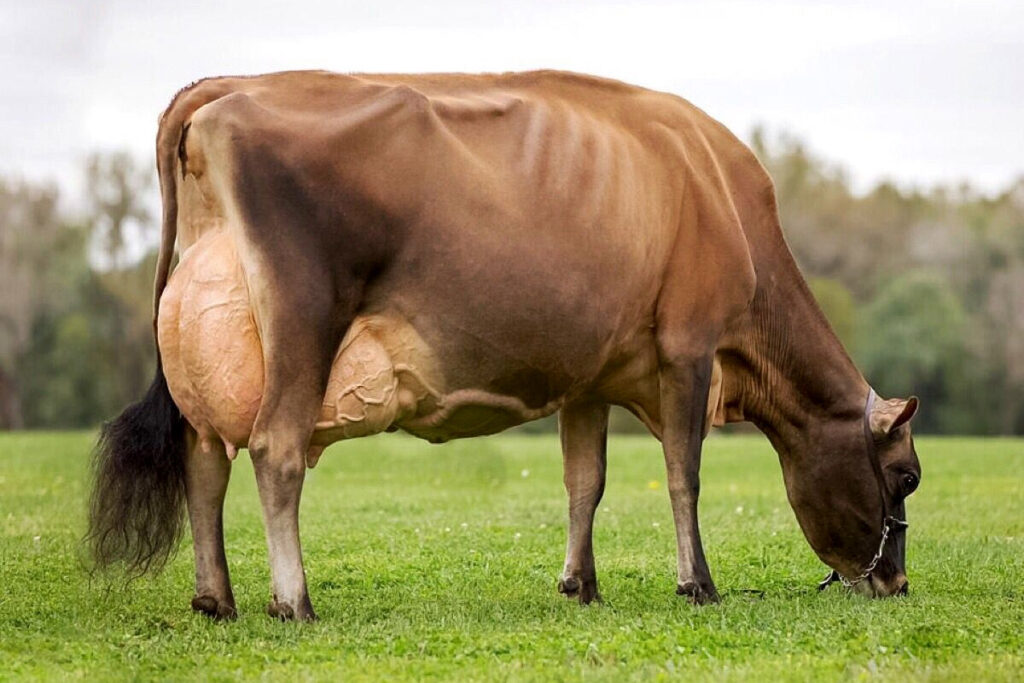
The Jersey cattle breed is a type of cattle known for its distinctive coloration and unique characteristics. Primarily bred for milk production, this breed stands out with various features.
Physical Characteristics:
Jersey cattle are typically small and elegant in build. They can be of solid color or have a single-color pattern with spots. Their heads are often dark-colored and large, with prominent and expressive eyes, and they typically have small horns.
Meat Quality:
The Jersey breed is primarily preferred for milk production, and its meat quality is not as high as that of other meat-focused breeds. Therefore, more specific breeds for meat production might be preferred.
Milk Yield:
Jersey cows are renowned for their high-quality milk production. Despite their relatively small size, they have a remarkably high milk yield. Their milk can have a high fat and protein content.
Fertility and Calving:
The fertility rate of Jersey cattle is generally considered good. Difficulties during calving are less common.
Adaptation Ability:
Jersey cattle are a resilient breed that can adapt to various climate conditions. They can perform well in both hot and cold climates.
Feeding and Care:
With high-quality feed and proper care, Jersey cows can provide the best yield. Regular veterinary care is important for maintaining a healthy herd.
Genetic Importance:
Due to its high-quality milk production and unique physical attributes, the Jersey breed plays a significant role in genetic development. It is an important breed that provides genetic diversity and quality for the dairy industry.
Lifespan:
Jersey cattle generally live between 10 to 15 years. Under healthy conditions, this lifespan can be extended.
Uses:
Jersey cattle are particularly preferred for milk production and dairy products. While they can also be used for meat production, they are especially suitable for the dairy industry.
Technical Data:
- Adult Male Weight: Between 600 to 800 kilograms
- Adult Female Weight: Between 350 to 450 kilograms
- Color: Solid color or single-color pattern with spots
- Milk Yield: High milk yield, high fat and protein content
- Meat Quality: Not as high as other meat-focused breeds
- Fertility: Good fertility
- Lifespan: 10 to 15 years
- Adaptation Ability: Ability to adapt to various climate conditions
- Uses: Primarily for milk production and dairy products
The Jersey cattle breed is an important cattle type known for its high-quality milk production and unique physical attributes. It is especially preferred for the dairy industry and contributes to genetic diversity in the field.
